London Design Biennale 2023: a guide to the Somerset house pavilions
Now open, London Design Biennale 2023 (until 25 June) follows a theme of ‘The Global Game: Remapping Collaborations’, led by Aric Chen and Het Nieuwe Instituut
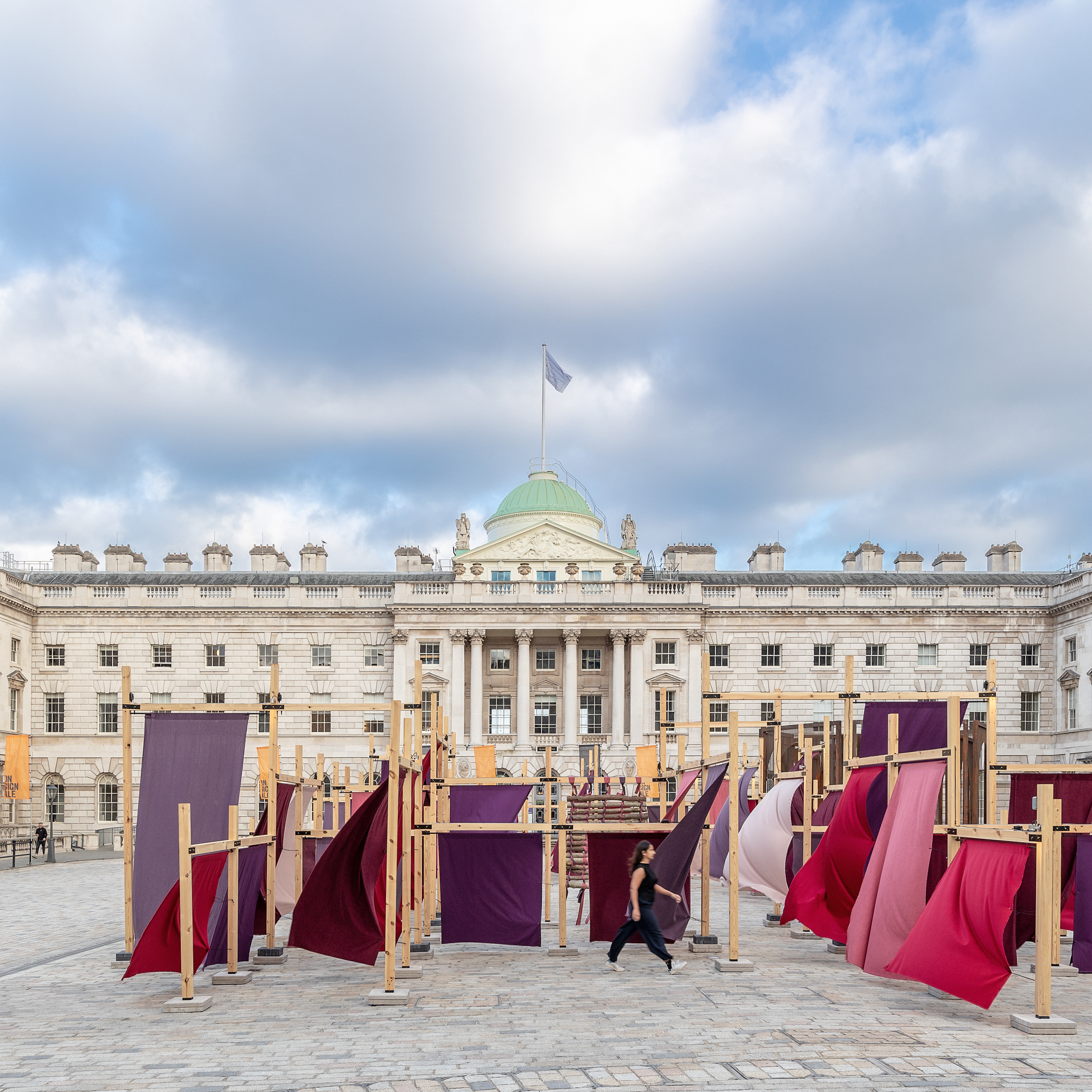
London Design Biennale 2023 opened with a rich programme with exhibitions and talks, which will take over Somerset House until 25 June 2023, led by Aric Chen and Rotterdam’s Het Nieuwe Instituut. The theme of the design event’s fourth edition is ‘The Global Game: Remapping Collaborations’, exploring design beyond borders, new forms of international cooperation and participation through multidisciplinary design.
‘The Global Game: Remapping Collaborations‘ aims to create an alternative geopolitical landscape driven not by competition nor conflict, but rather cooperation,’ comments Chen. ‘We all agree that global challenges require global collaboration. This is easier said than done, but in some small way, we hope real international exchanges will arise from this biennial in a way that also invites visitors to become part of the process.’
London Design Biennale 2023: the Pavilions to see at Somerset House
Somerset House Courtyard
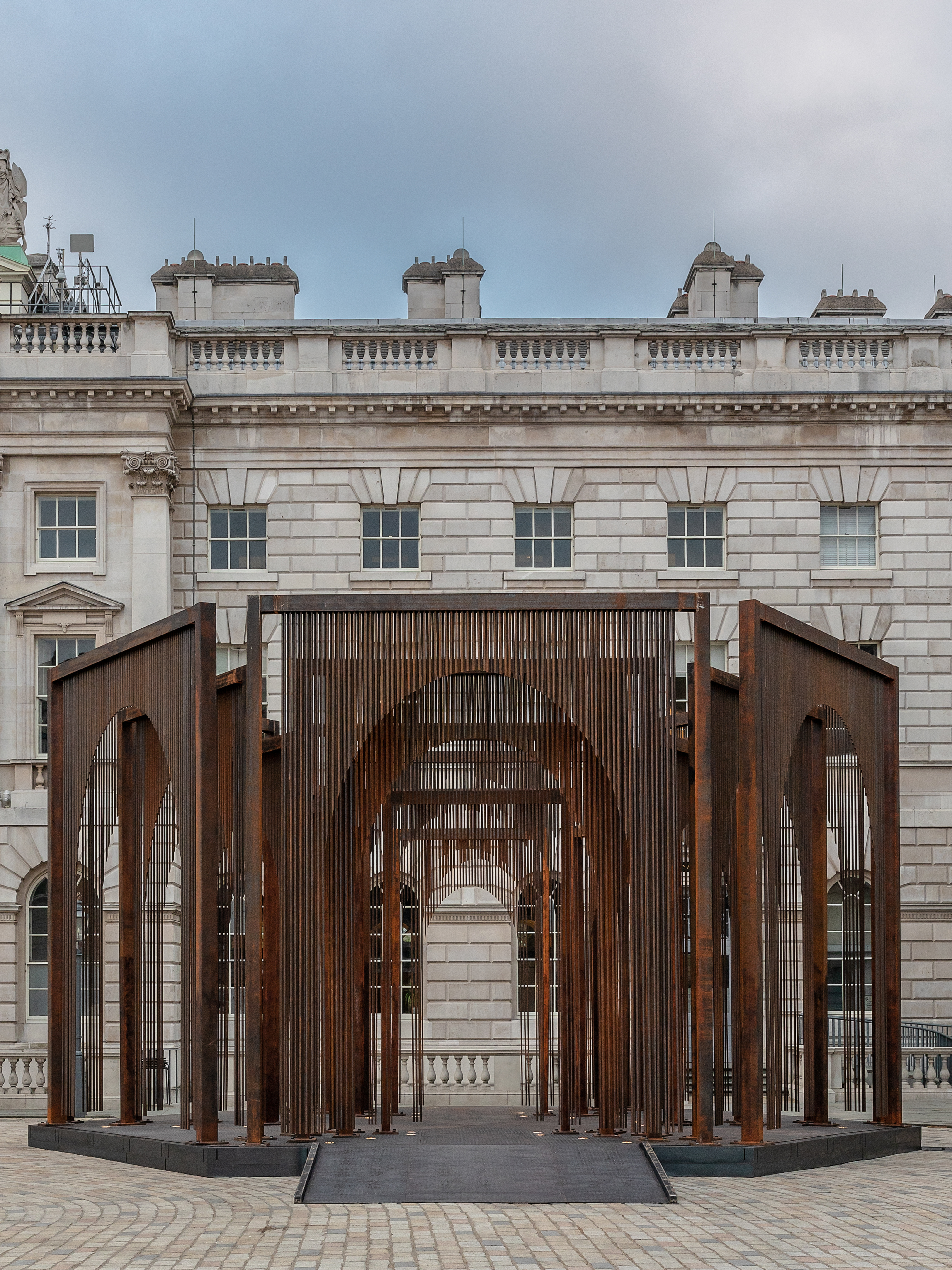
Turkish Pavilion in the Somerset House Courtyard
In the Somerset House courtyard, visitors are greeted by the Malta pavilion presenting a ‘village square’, defined by textile designs made with traditional Phoenician-Maltese dyes to highlight ‘ancient approaches to the urban environment and the chance encounters that they encourage’. Nearby, the Turkey presents a sculptural piece where a square is defined by oversized chimes, blurring the definition of borders.
West Wing
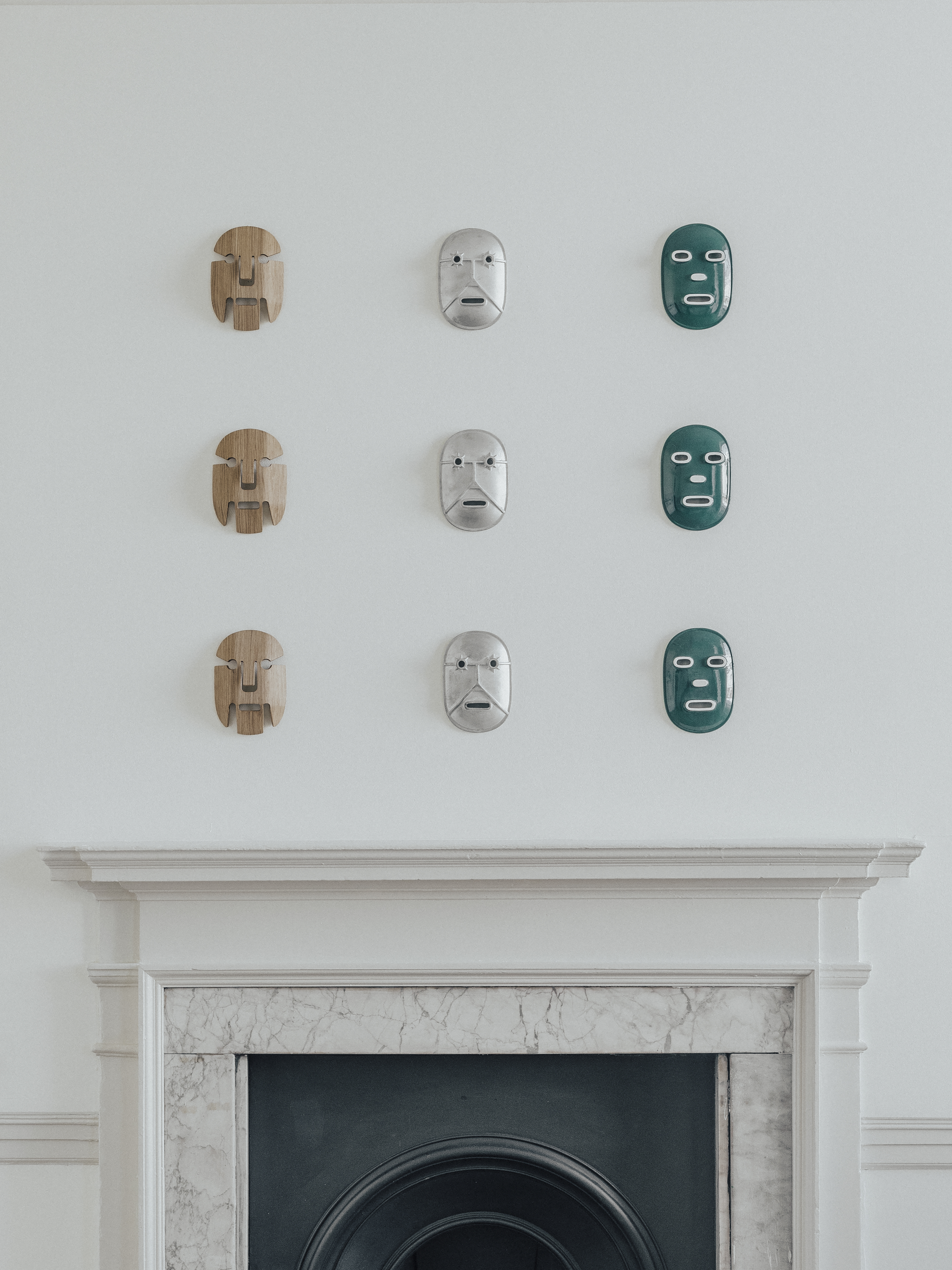
Masks by Philippe Tabet, part of the Italy Pavilion in the West Wing of Somerset House
Among the West Wing Pavilions is Italy, curated by Triennale Milano and titled 'Unseen Collaborations'. In its 100th year, the Triennale looked at the theme of this year's Design Biennale reflecting on the history of the design of transatlantic liners. Starting from the Triennale archives, the curatorial team commissioned a series of contemporary works by international artists and designers including paintings by Liu Xiaodong, a wall atlas by Davide Trabucco, wall-hanging textiles pieces by Melania Toma and masks by Philippe Tabet.
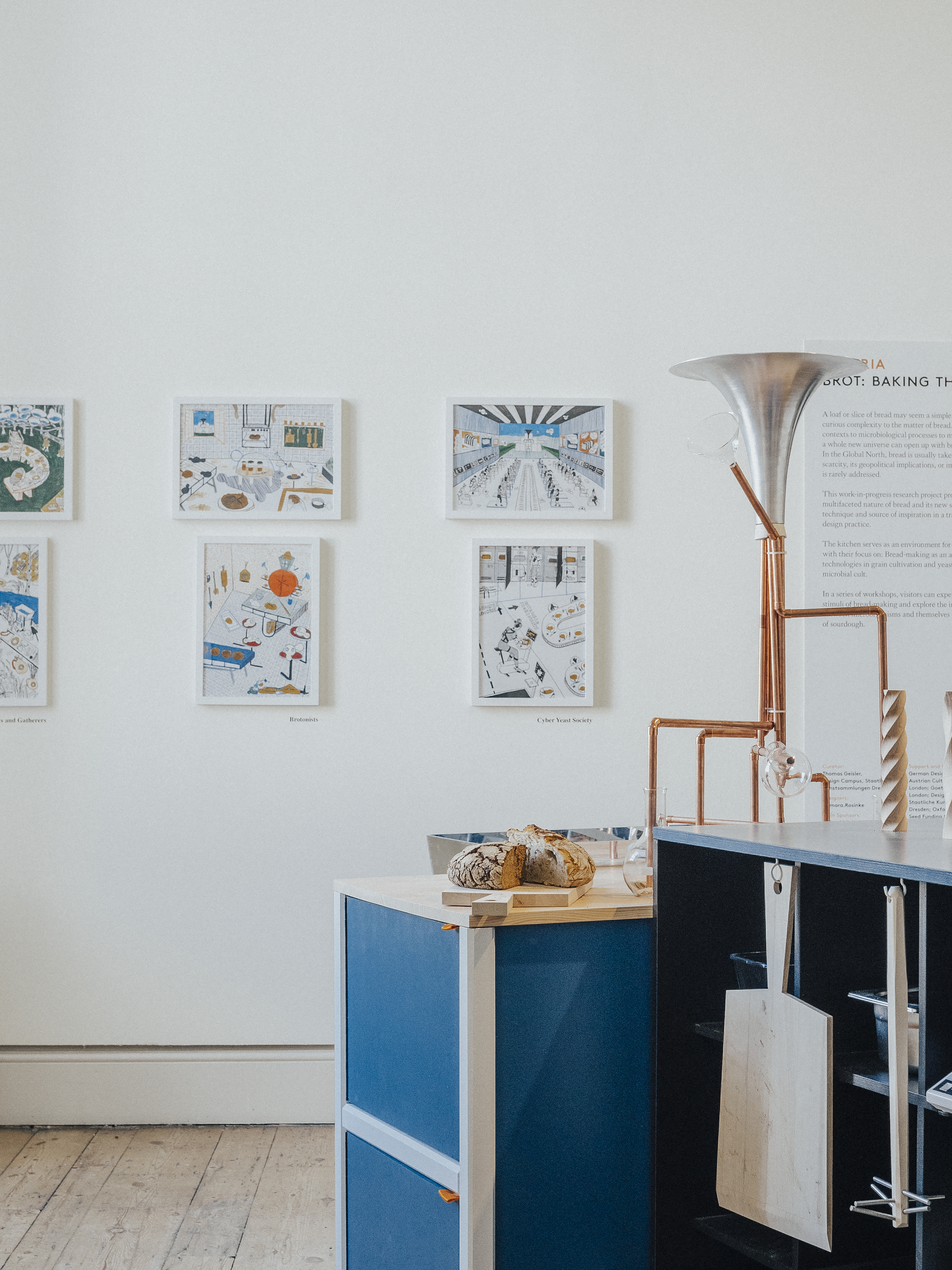
Austrian Pavilion, Brot: Baking the future
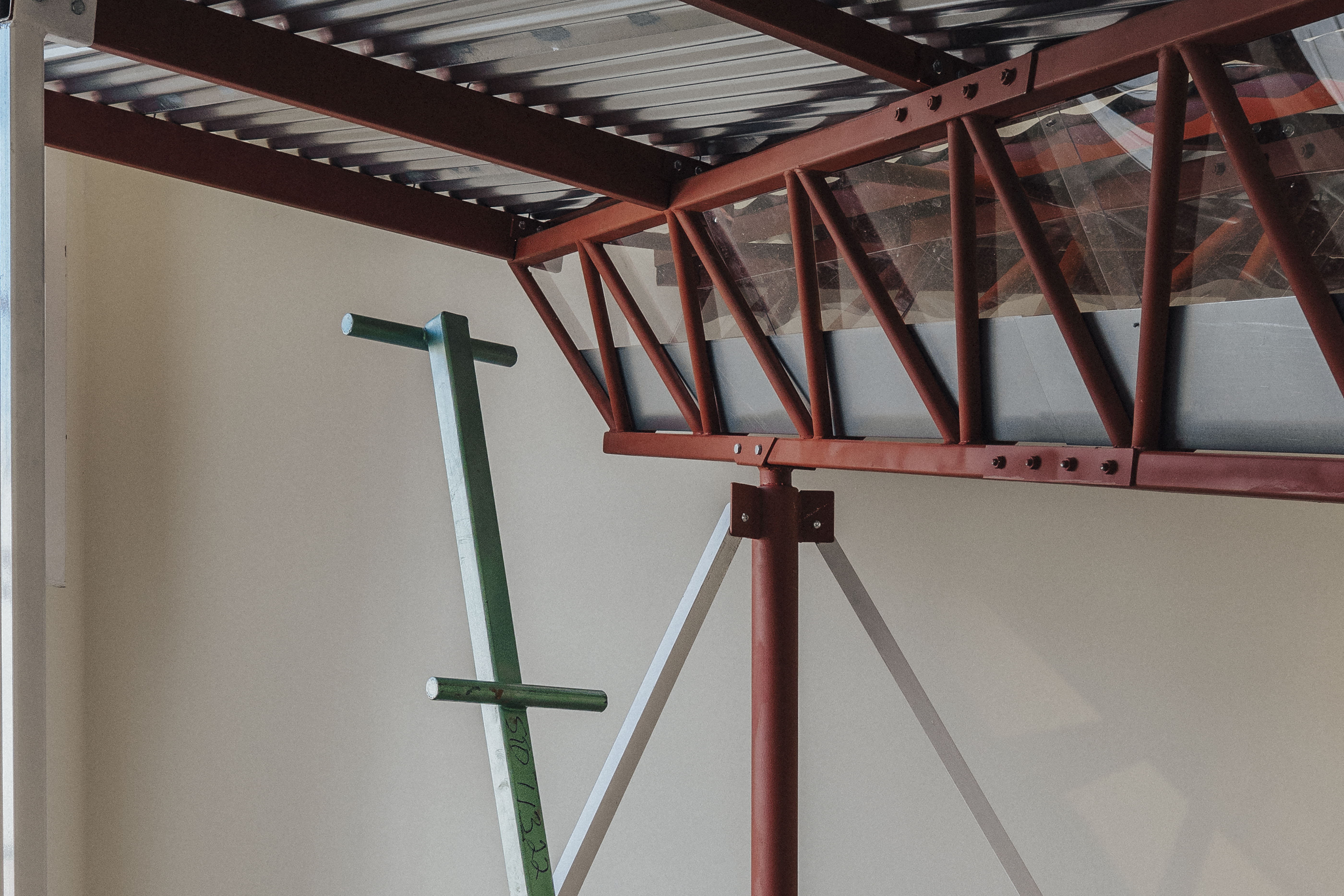
Bidi Bidi
Nearby, Bidi Bidi is a project that presents the process to create the Bidi Bidi Music & Arts Centre in northern Uganda, an open-air amphitheatre that serves as community space and performance venue, a collaboration between to.org, Hassell, LocalWorks and Arup, with on-site labour from refugees and local Ugandans.
From Austria, design studio Chmara Rosinke present a project by exploring bread as a sensory and cultural experience (also filling the West Wing with its fragrant scent).
Chile presents Materia Prestada / Borrowed Matter, an installation that highlights new ways of using wood cellulose to create textiles, reflecting on Chile's forest industry and its extractivist process.
Wallpaper* Newsletter
Receive our daily digest of inspiration, escapism and design stories from around the world direct to your inbox.
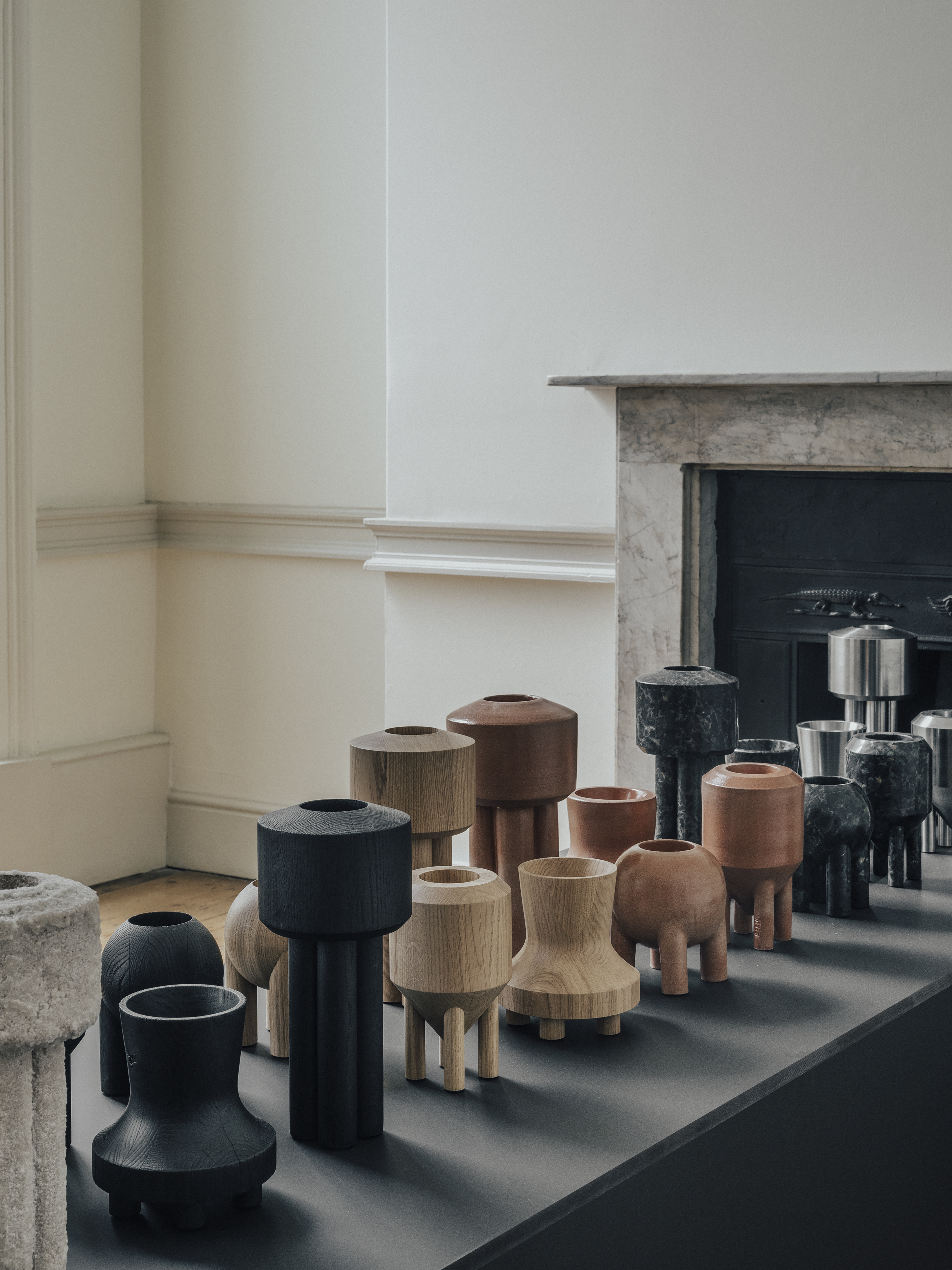
Serhii Hotvianskyi's work at the Ukrainian Pavilion
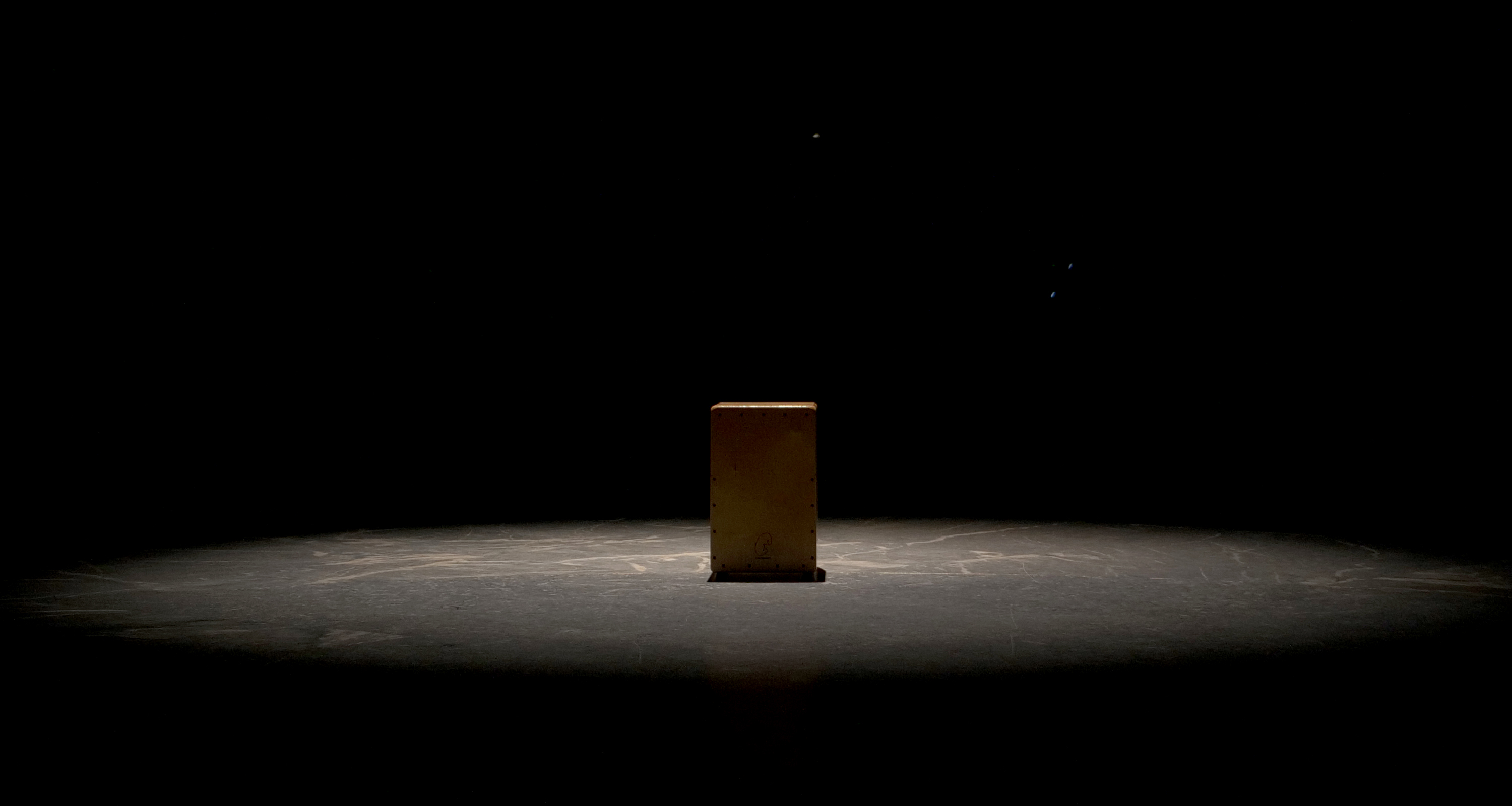
Spain and Peru pavilion
Ukraine presents a project showcasing Ukrainian design in times of change, the installation titled 'The Darkest Hour is Just before Dawn' reflects the country's rich heritage and how it's reflected in its cultural and creative initiatives. Participants include Victoria Yakusha, whose tapestry is inspired by ancient craft, Serhii Hotvianskyi whose symbolic objects represent typical industrial buildings and are made of local materials, and Kateryna Sokolova who worked with Noom to create a military edition of the Gropius Low Chair, representing art's transformative power during the Russian invasion.
Spain and Peru present a collaborative pavilion, embodying the biennale’s theme with a body of work inspired by the ‘cajón’, a traditional Afro-Peruvian percussion instrument that was later brought into Spain, becoming the instrument of flamenco music.
Meanwhile, the Democratic Republic of Congo Pavilion reimagines the country’s national museum as a vivid virtual world, offering visitors the opportunity to visit the Kinshasa museum through a digital experience.
East Wing
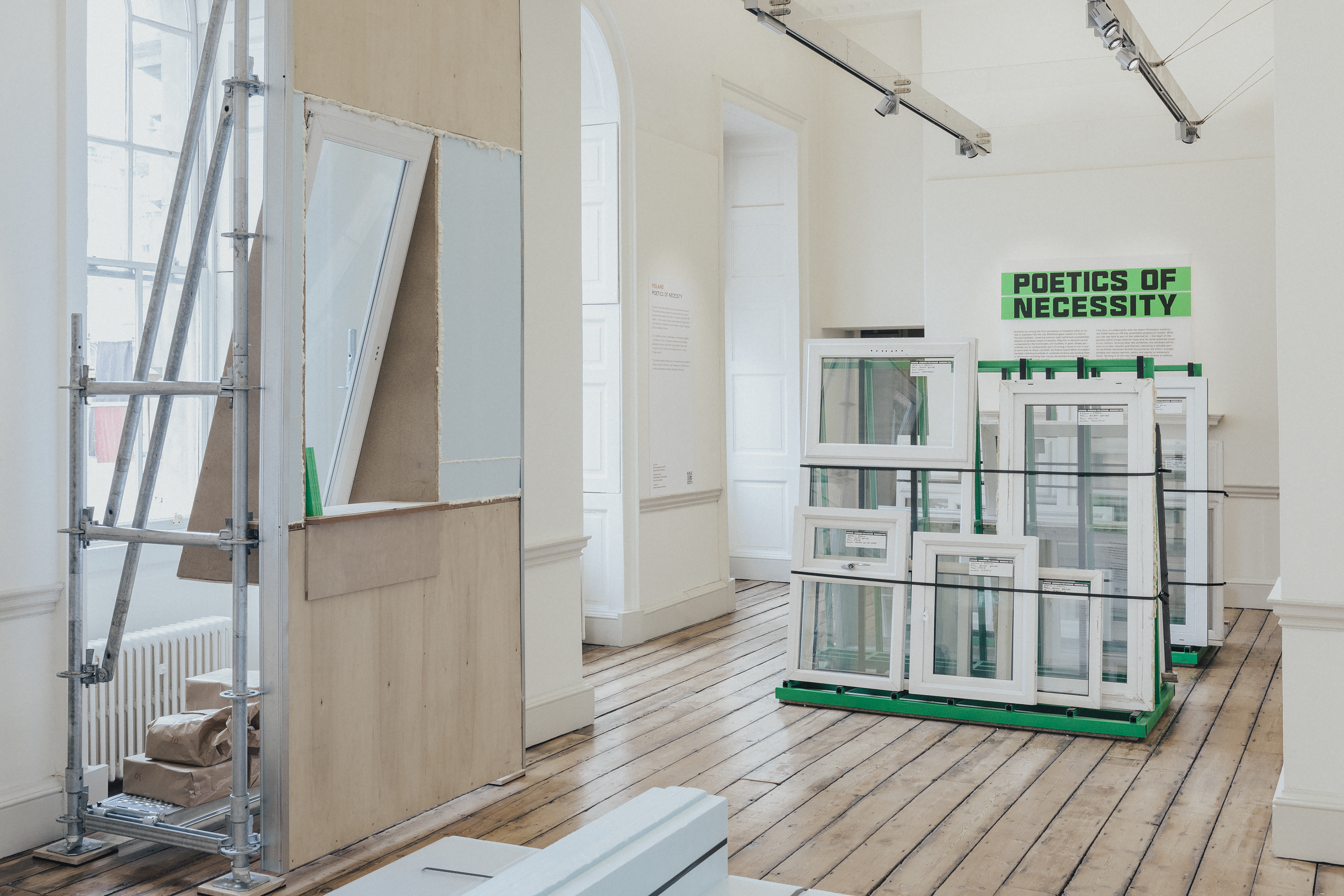
Polish Pavilion
Among the most poignant projects showcased in the East Wing is Poetics of Necessity, a project presented by the Polish Pavilion inspired by the Windows project, a call to action to collect reusable windows, given by Poles to Ukrainians stripped of dignified living conditions as a result of war. Discarded windows were collected from the UK and are shown at Somerset House before being sent to Ukraine.
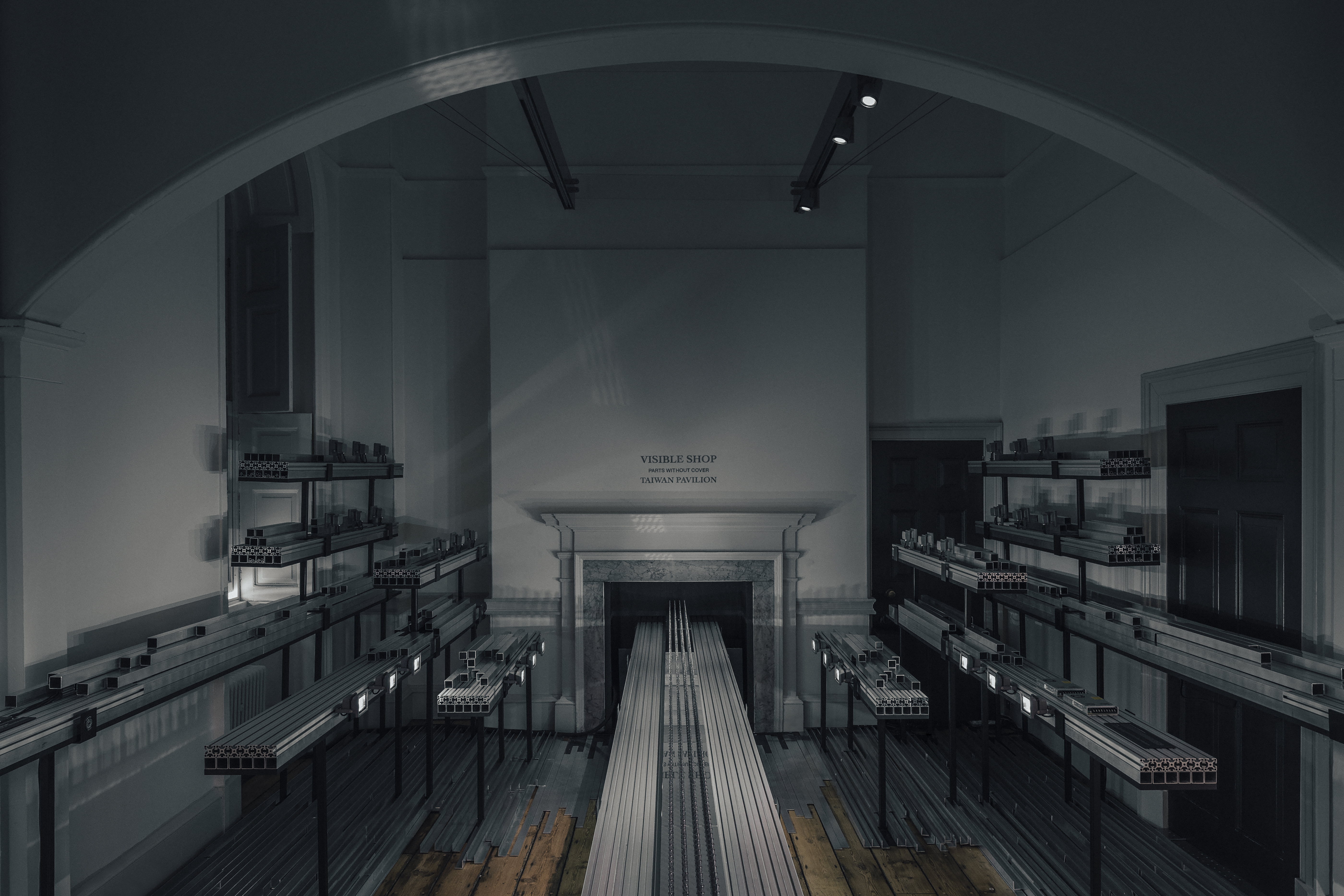
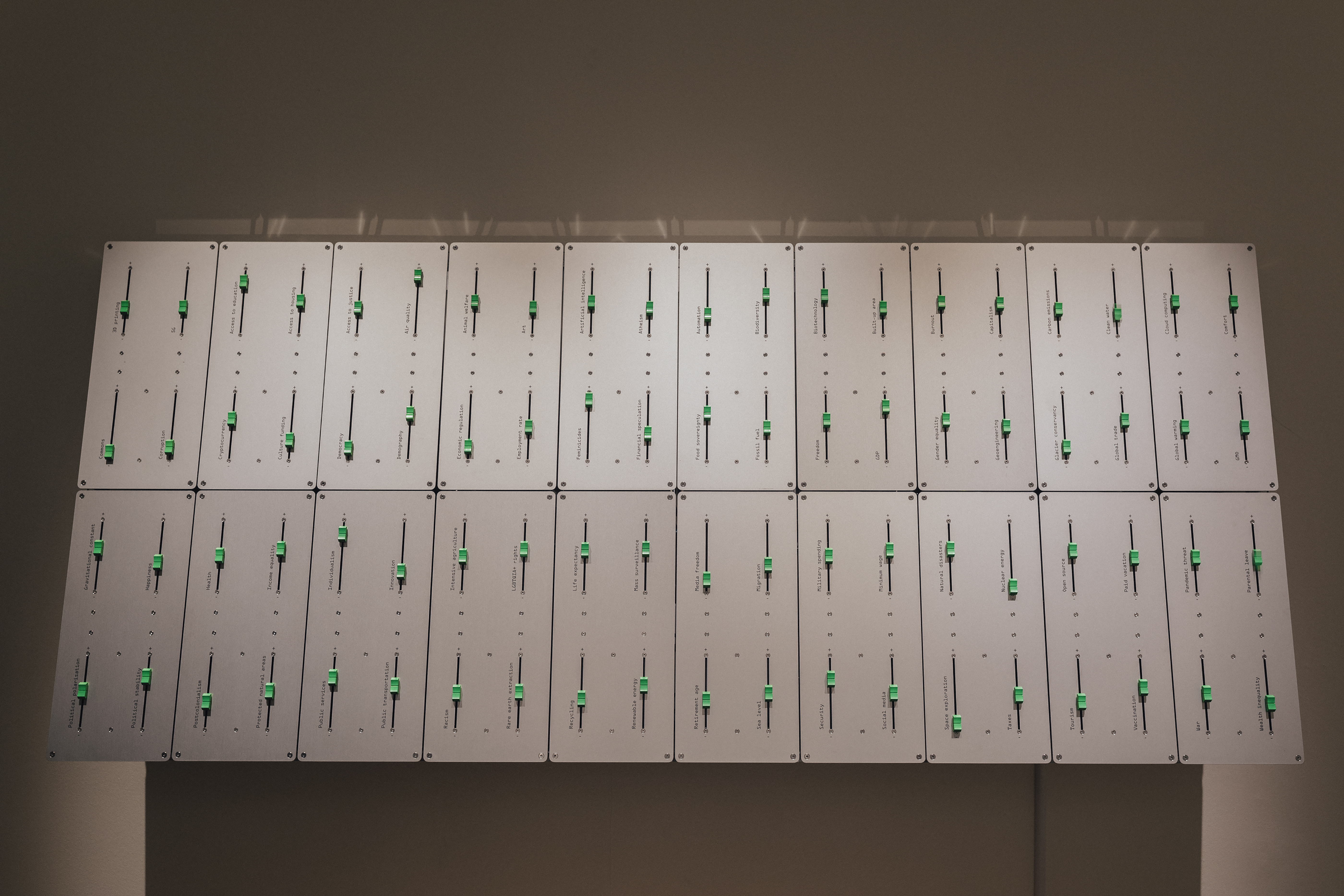
Mudac
In the East Wing is also Taiwan, whose Visible Shop celebrates the country's key role in global industrial collaboration, and Mudac (Lausanne's Museum of Contemporary Design and Applied Arts), whose project is a contemporary reinterpretation of Buckminster Fuller's World Game, a simulation tool inspired by war games, which aimed for equal distribution of resources on a global scale.
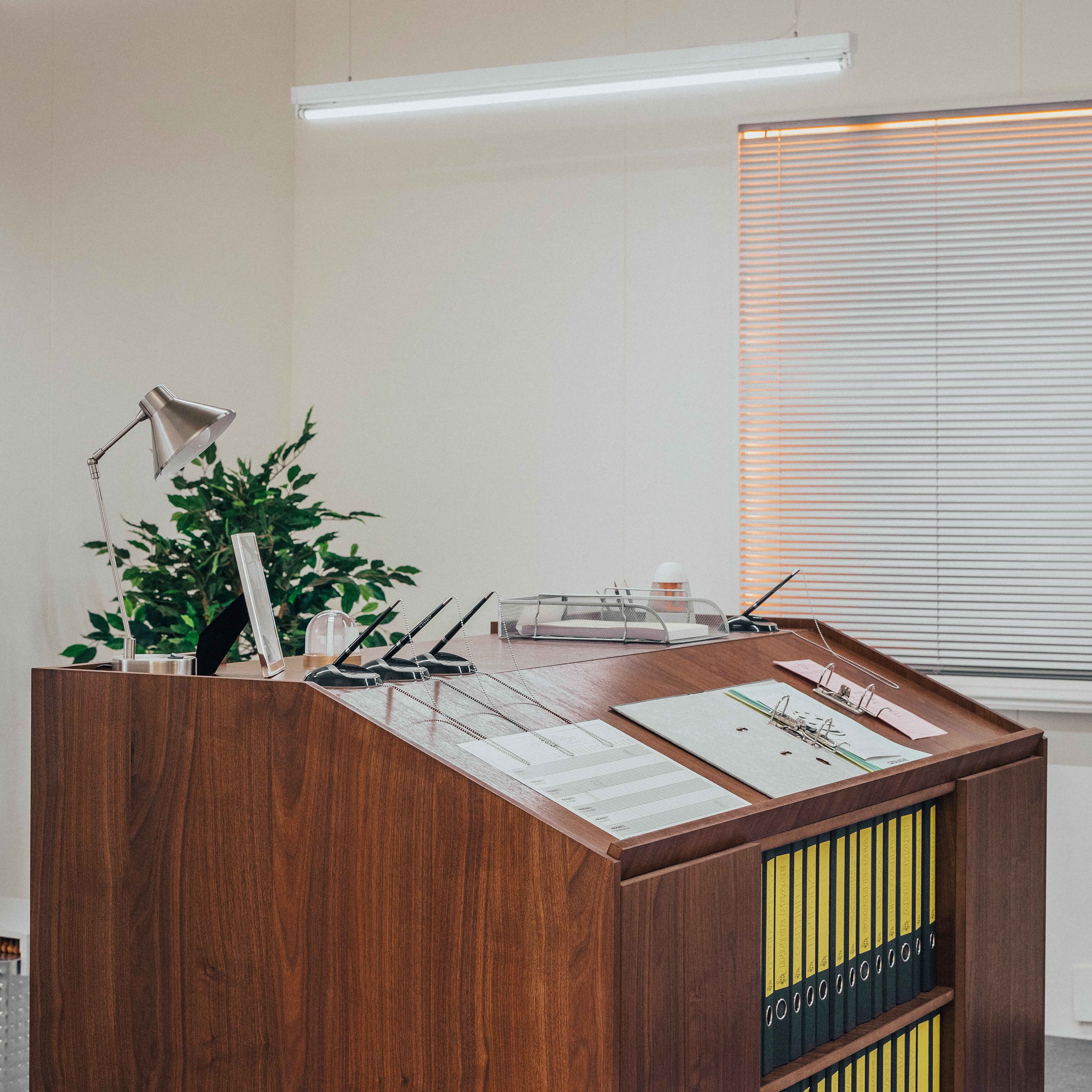
Netherlands Pavilion
Taking the theme of collaboration to the next level is the Netherlands pavilion, commissioned by Het Nieuwe Instituut. Other pavilions are invited to check out elements of the office-like, site-specific installation, creating new narratives throughout Somerset House.
River Terrace
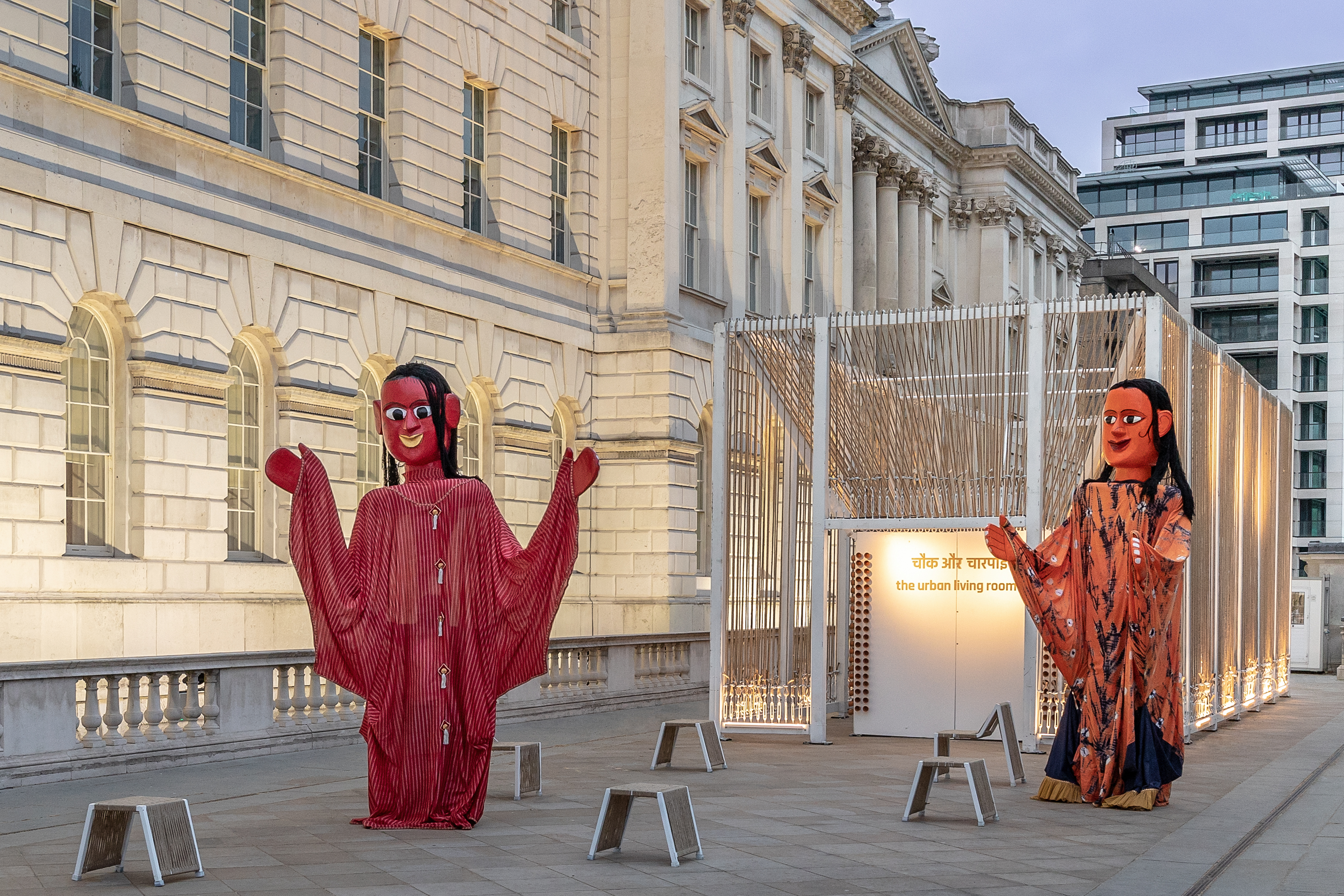
Facing the Thames on the River Terrace, the India pavilion evokes a contemporary interpretation of the Indian city chowk, an open market at the junction of streets. The charpai, a traditional, multifunctional daybed widely used across the country is the centre of the pavilion's narrative: a design icon that transcends time, its weave is representative of Indian craft, while its versatility, the curators explain, is an expression of 'indianness'.
Mezzanine and Embankment

Humanitarian pavilion by Shigeru Ban
The exhibition continues on the lower levels of Somerset House, with the Nigeria pavilion taking over part of the Mezzanine space. ‘Natural Synthesis’ is a project that recreates a classic Nigerian courtyard scene, 'to contemplate the nature of collaboration and conflict.' Nearby, the USA space offers a display by author and artist John Mack that uses lightboxes to juxtapose natural landscapes with today's technologies.
In the Embankment space, the Humanitarian pavilion by Shigeru Ban is an unmissable highlight of the exhibition. ‘Paper Sanctuary’ is a collaboration between architect Shigeru Ban, Ukrainian-born poet, novelist and literary translator Svetlana Lavochkina, and Ukrainian composer Valentin Silvestrov, using Ban's Partition System (conceived to provide privacy to refugees in temporary facilities) to design a sanctuary of art, poetry, music and stories .
London Design Biennale 2023 is on view until 25 June 2023
Somerset House, Strand, London WC2R 1LA
Rosa Bertoli was born in Udine, Italy, and now lives in London. Since 2014, she has been the Design Editor of Wallpaper*, where she oversees design content for the print and online editions, as well as special editorial projects. Through her role at Wallpaper*, she has written extensively about all areas of design. Rosa has been speaker and moderator for various design talks and conferences including London Craft Week, Maison & Objet, The Italian Cultural Institute (London), Clippings, Zaha Hadid Design, Kartell and Frieze Art Fair. Rosa has been on judging panels for the Chart Architecture Award, the Dutch Design Awards and the DesignGuild Marks. She has written for numerous English and Italian language publications, and worked as a content and communication consultant for fashion and design brands.
-
 The Subaru Forester is the definition of unpretentious automotive design
The Subaru Forester is the definition of unpretentious automotive designIt’s not exactly king of the crossovers, but the Subaru Forester e-Boxer is reliable, practical and great for keeping a low profile
By Jonathan Bell
-
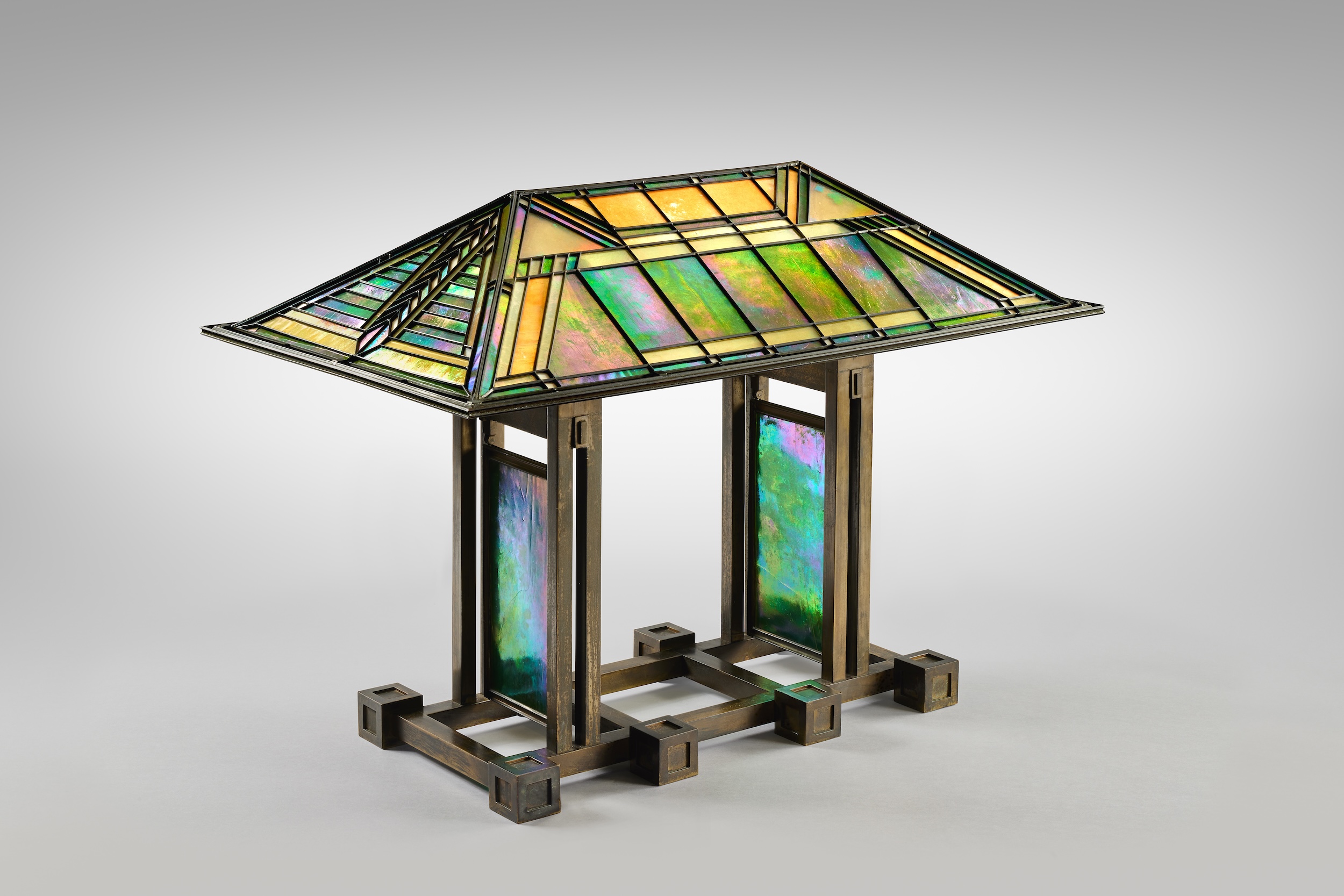 Sotheby’s is auctioning a rare Frank Lloyd Wright lamp – and it could fetch $5 million
Sotheby’s is auctioning a rare Frank Lloyd Wright lamp – and it could fetch $5 millionThe architect's ‘Double-Pedestal’ lamp, which was designed for the Dana House in 1903, is hitting the auction block 13 May at Sotheby's.
By Anna Solomon
-
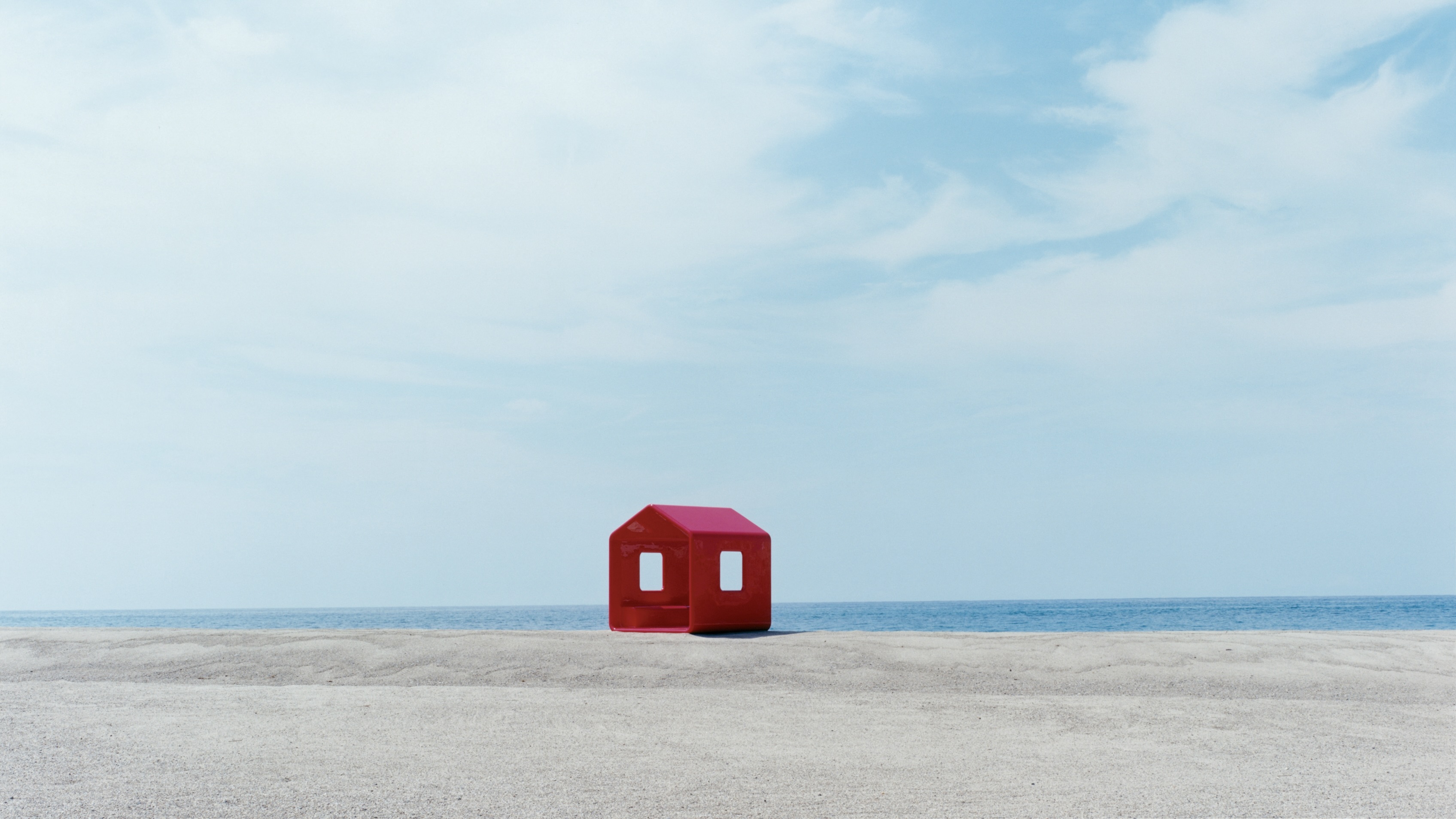 Naoto Fukasawa sparks children’s imaginations with play sculptures
Naoto Fukasawa sparks children’s imaginations with play sculpturesThe Japanese designer creates an intuitive series of bold play sculptures, designed to spark children’s desire to play without thinking
By Danielle Demetriou
-
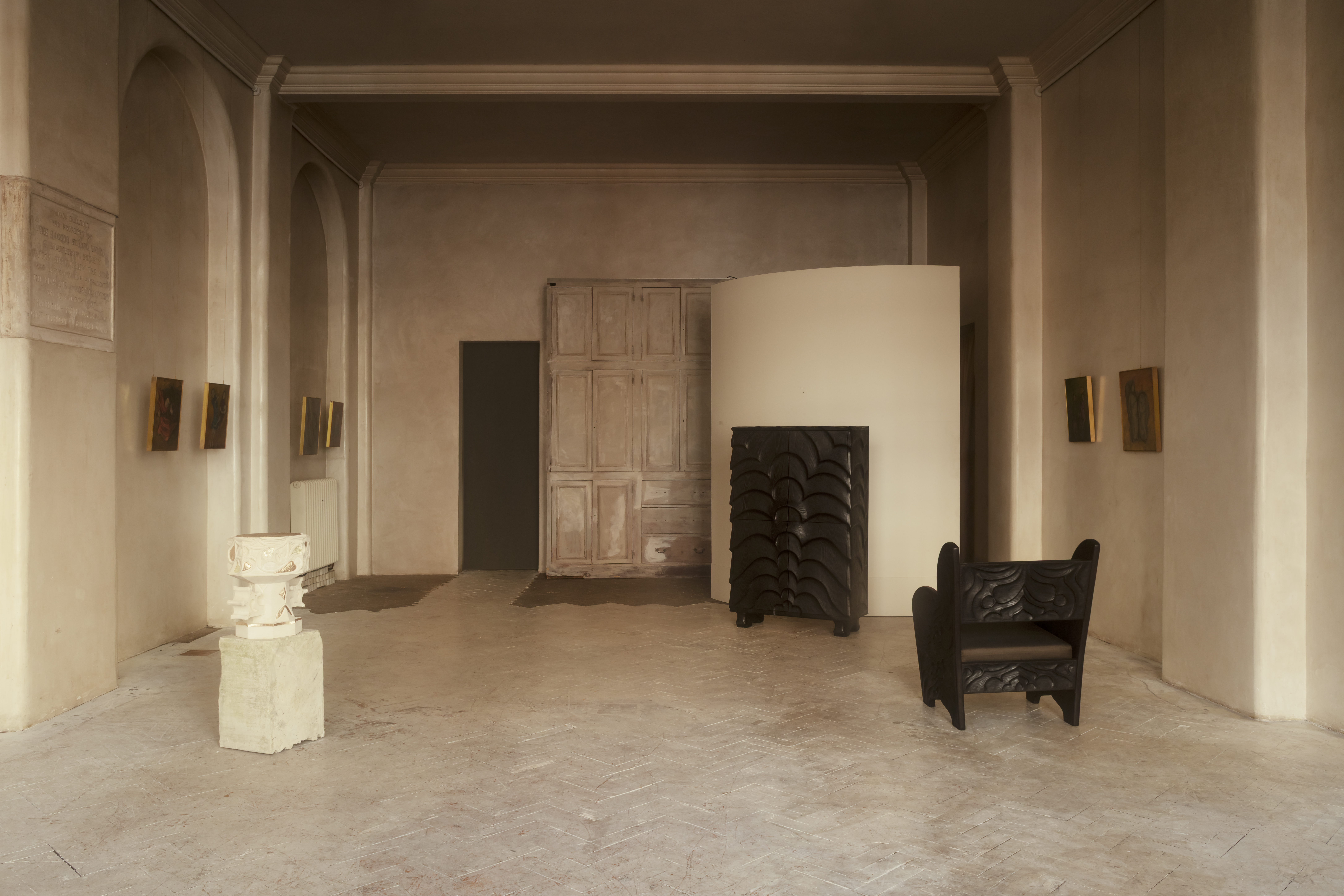 A new London show explores material magic with medieval melancholy
A new London show explores material magic with medieval melancholyInspired by deconsecrated monasteries, interior designer and curator Jermaine Gallacher takes us on a journey through time and mood in a London exhibition at The Ragged School
By Billie Muraben
-
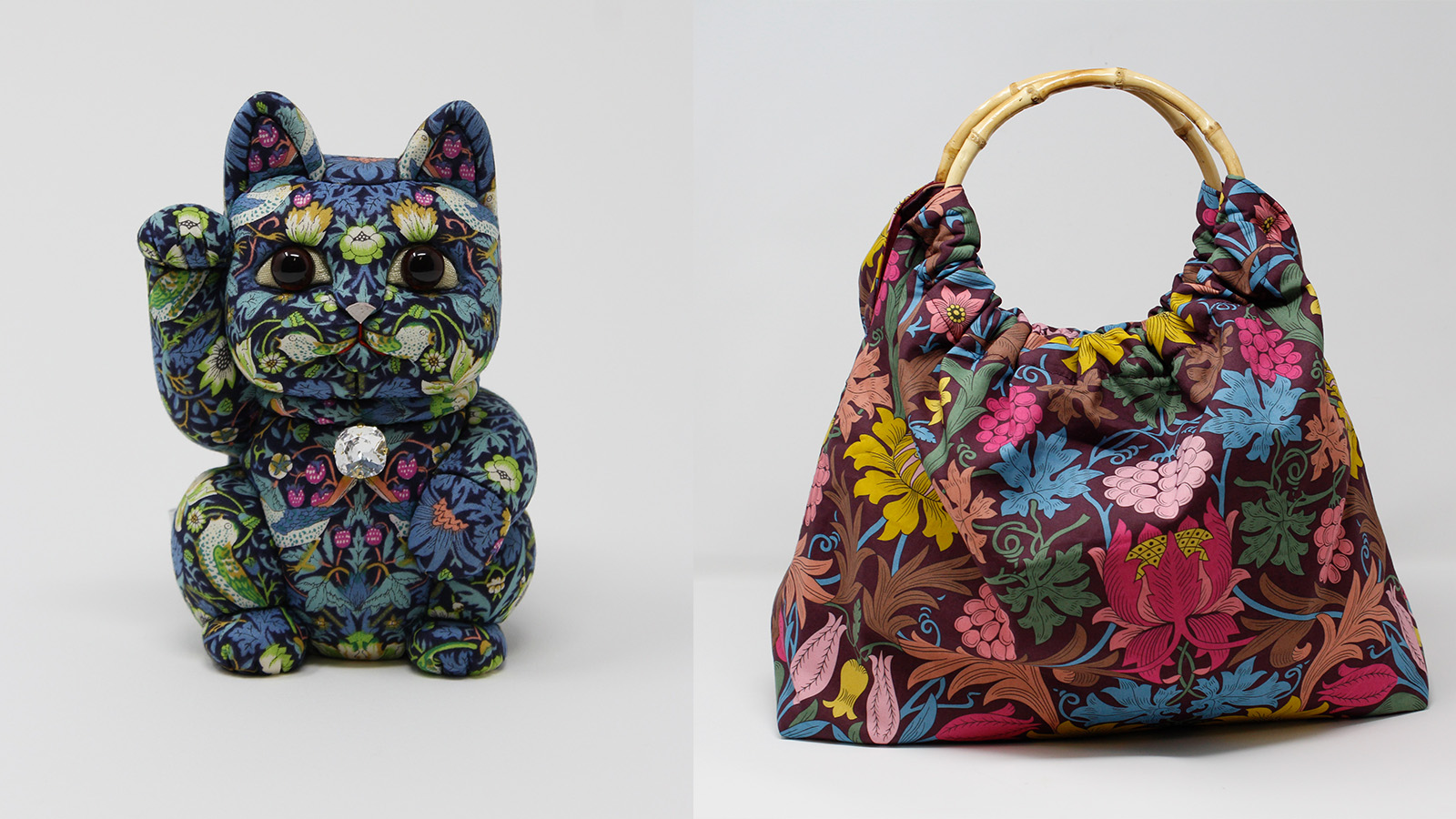 William Morris mania meets the design industry’s darker side in a new London show
William Morris mania meets the design industry’s darker side in a new London show‘Morris Mania’ at the William Morris Gallery explores the British designer’s complicated legacy in an ever-more commodified world
By Tianna Williams
-
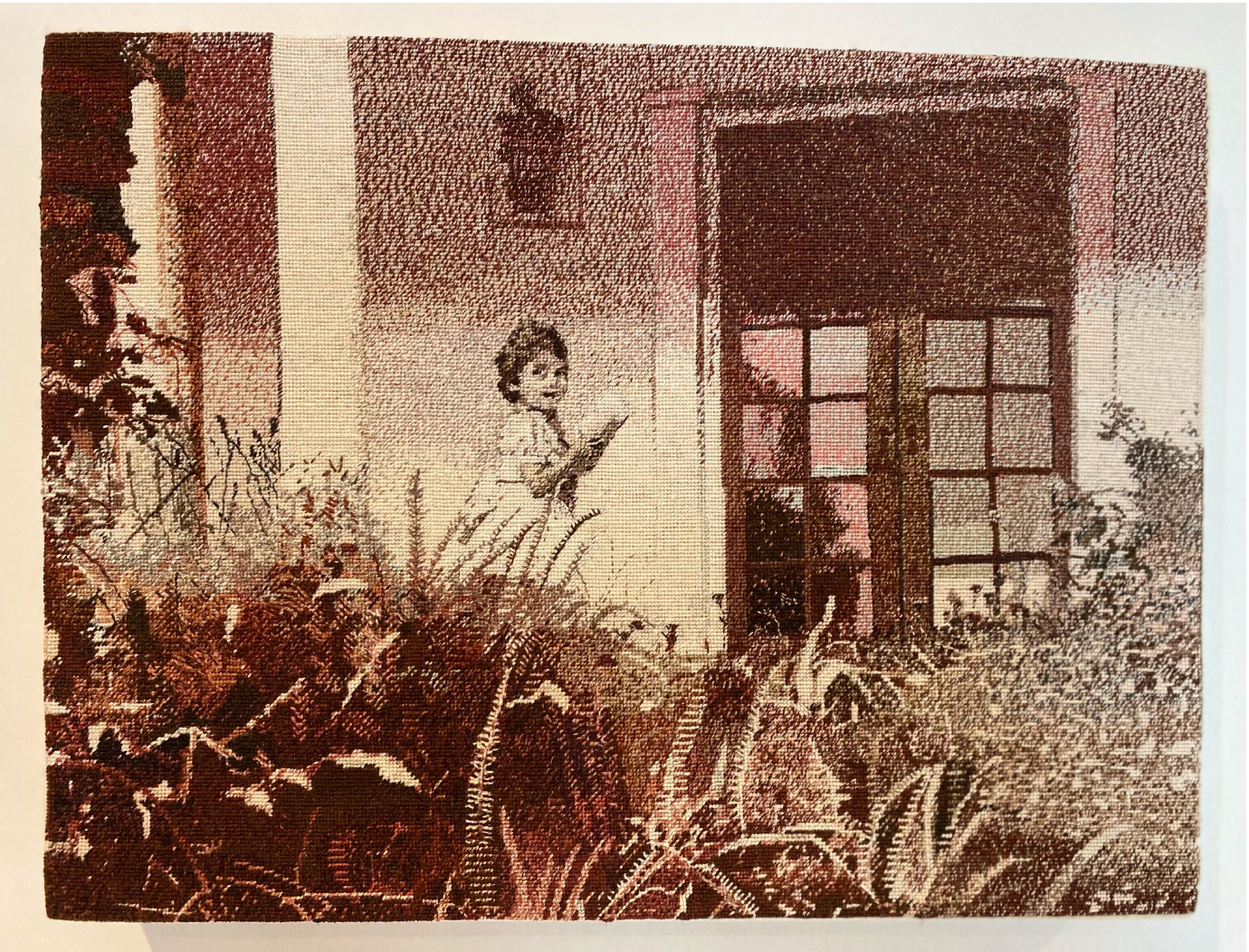 Wallpaper* takes a turn around Somerset House for Collect 2025
Wallpaper* takes a turn around Somerset House for Collect 2025Our round-up of the highlights from the 21st edition of the collectible craft and design fair in London
By Malaika Byng
-
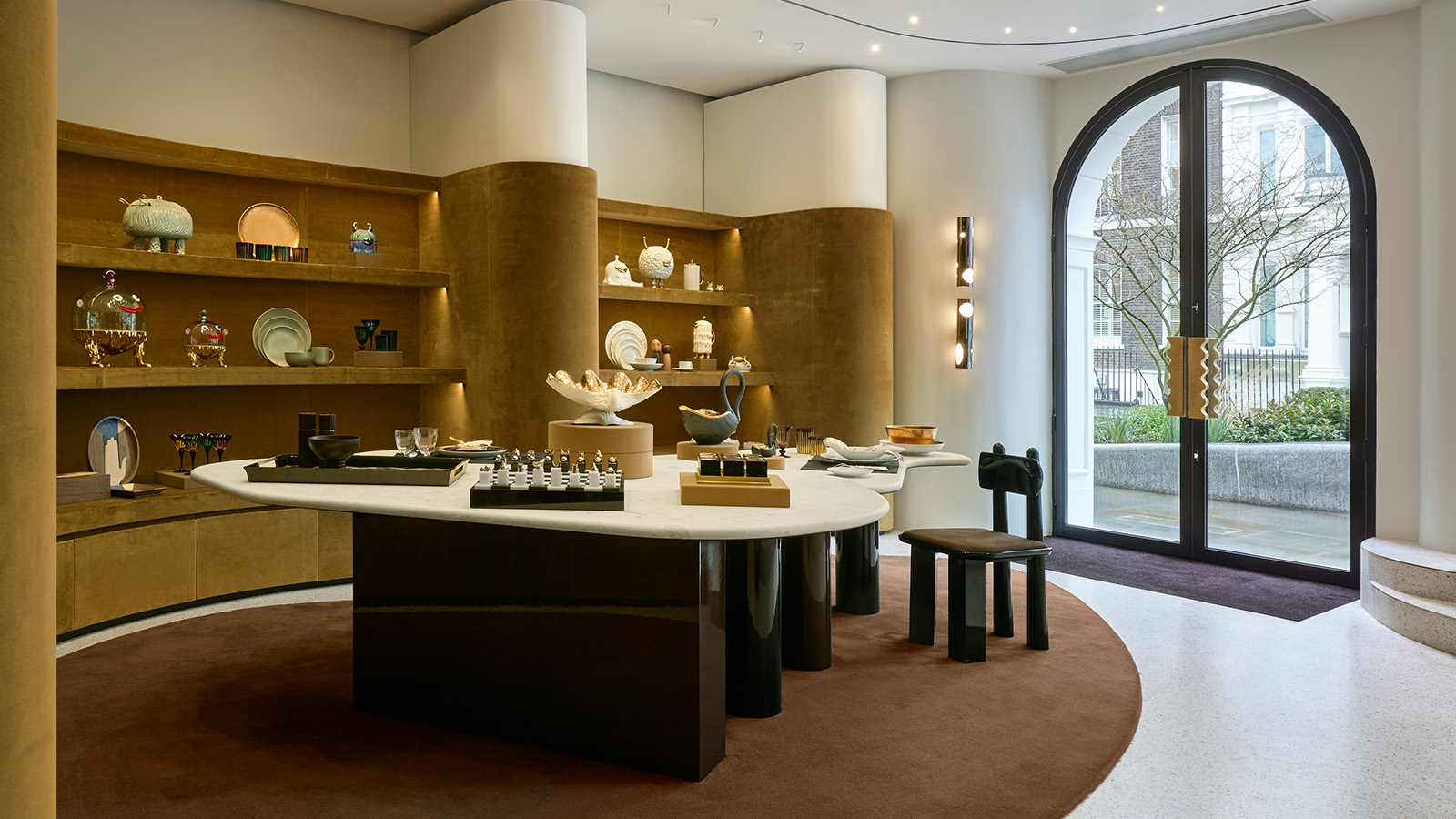 ‘It’s a museum-like jewel box’: L’Objet marks 20 years of elegant design with a new London flagship
‘It’s a museum-like jewel box’: L’Objet marks 20 years of elegant design with a new London flagshipOpening on 12 March 2025, L’Objet’s new London boutique is rich in chocolate colours and velvet detailing
By Tianna Williams
-
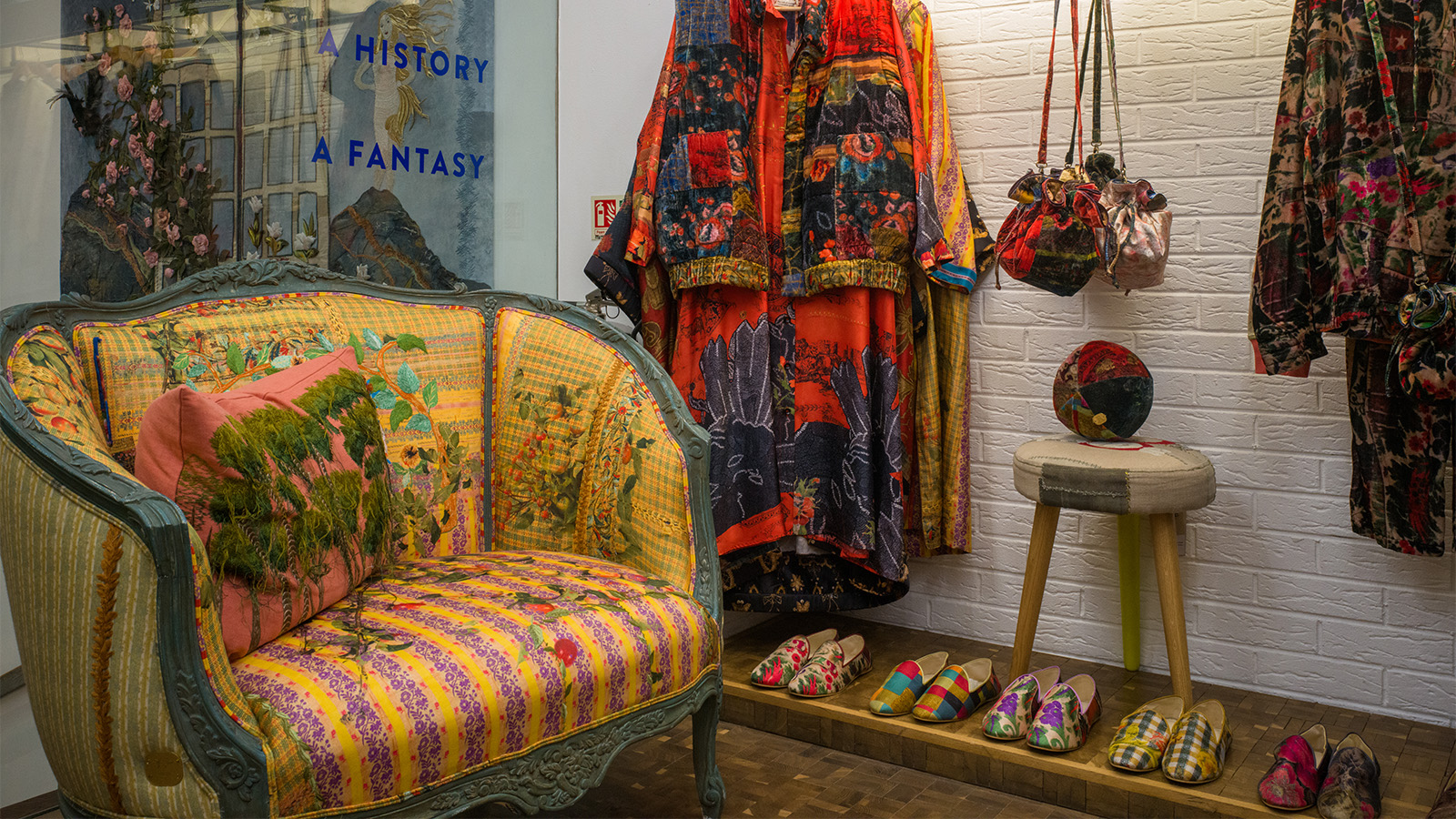 This Beirut design collective threads untold stories into upholstered antique furniture
This Beirut design collective threads untold stories into upholstered antique furnitureBeirut-based Bokja opens a Notting Hill pop-up that's a temple to textiles, from upholstered furniture to embroidered cushions crafted by artisans (until 25 March 2025)
By Tianna Williams
-
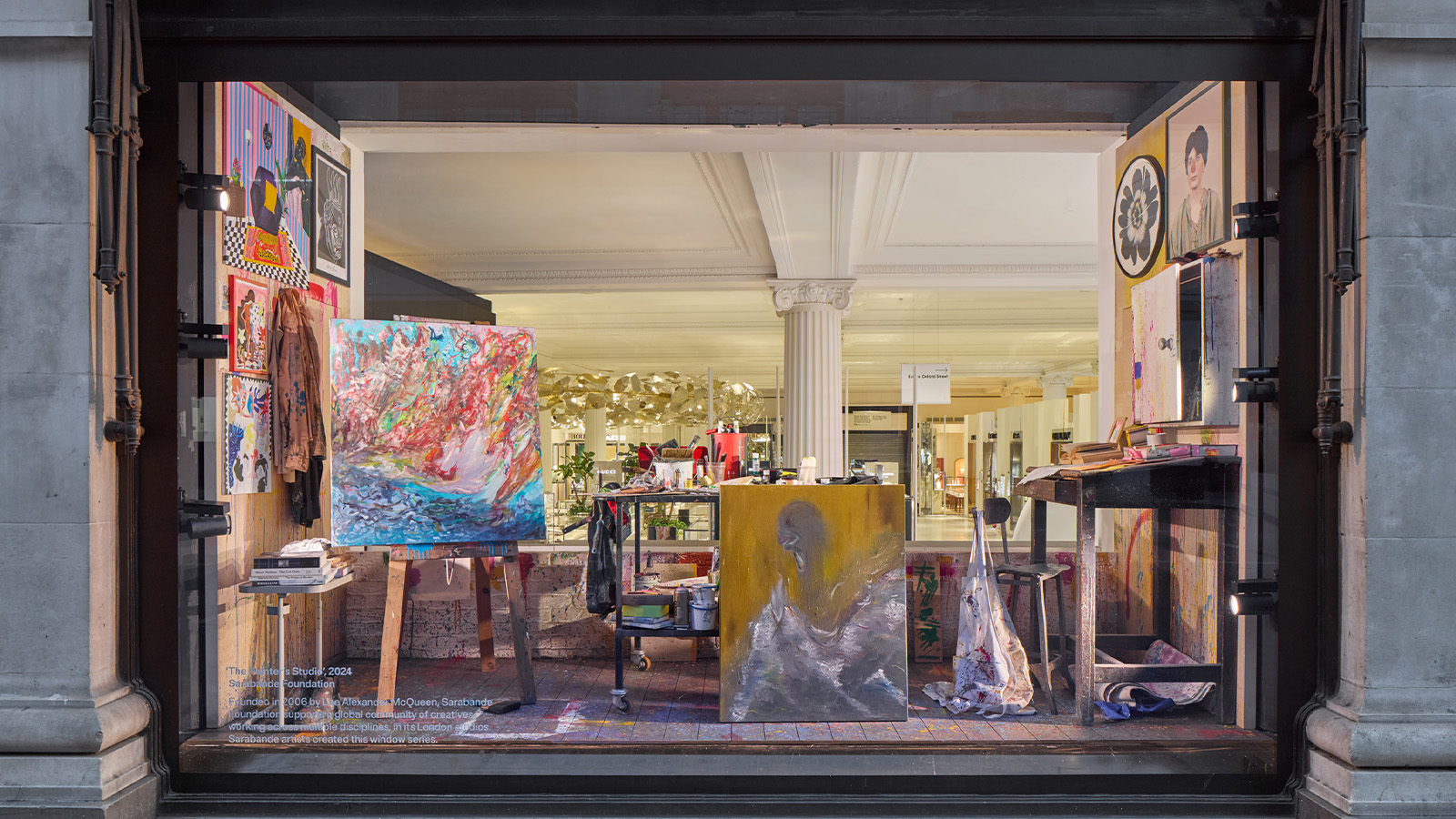 'A creative explosion' in the West End: Sarabande Foundation takes residency at Selfridges
'A creative explosion' in the West End: Sarabande Foundation takes residency at SelfridgesSarabande Foundation's ‘House of Bandits’ takes up residence with gusto in Selfridges for nine weeks
By Hugo Macdonald
-
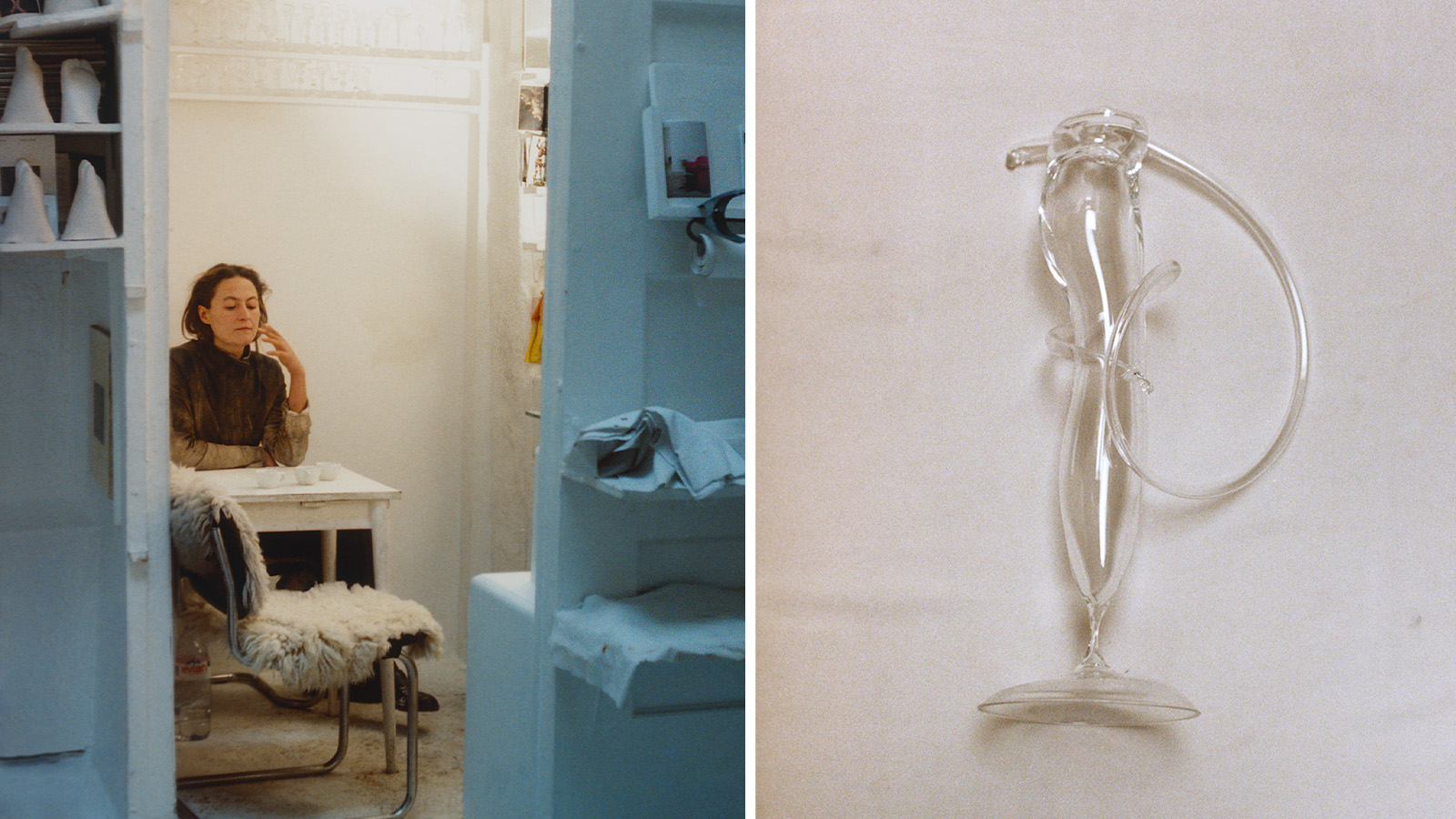 ‘I began experimenting and haven’t really stopped,’ Miranda Keyes on working with glass
‘I began experimenting and haven’t really stopped,’ Miranda Keyes on working with glassIn a rapidly changing world, the route designers take to discover their calling is increasingly circuitous. Here we speak to Miranda Keyes about her forging her own path to success
By Hugo Macdonald
-
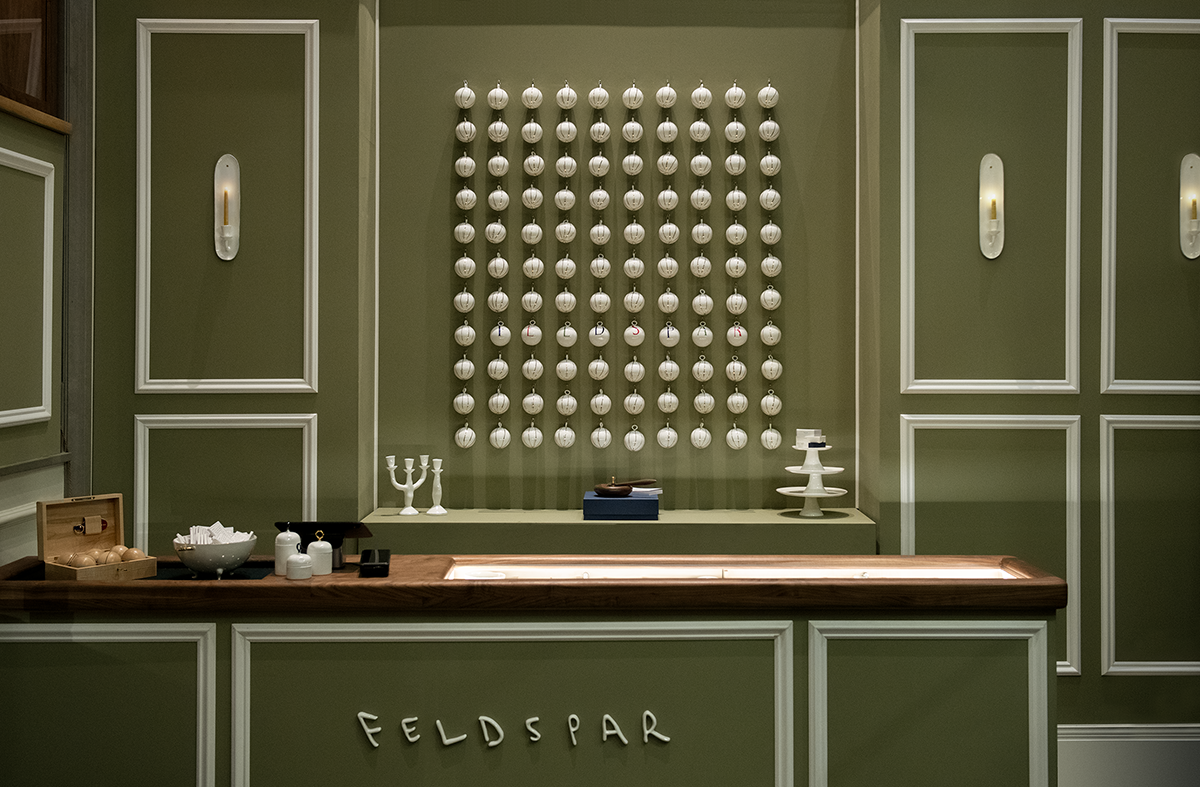 Feldspar makes its mark on Whitehall with a festive pop-up at Corinthia Hotel
Feldspar makes its mark on Whitehall with a festive pop-up at Corinthia HotelDevon-based bone china brand Feldspar makes its first foray into shopkeeping with a pop-up at London’s Corinthia Hotel. Ali Morris speaks with the founders and peeks inside
By Ali Morris